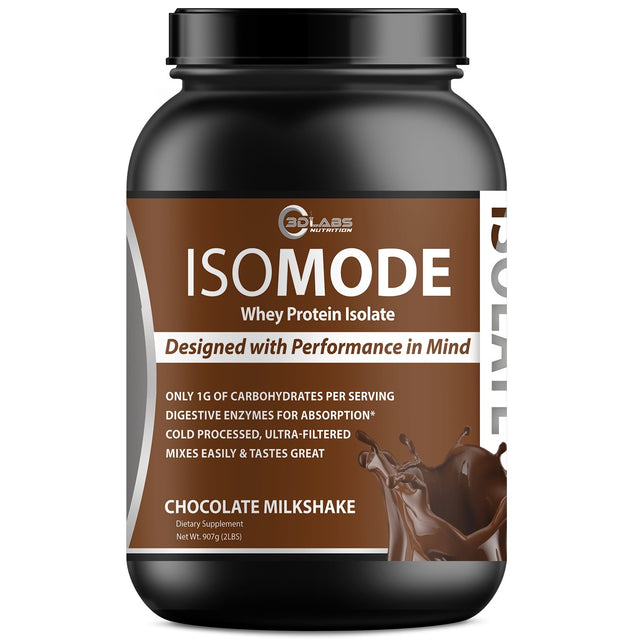Why Does Intermittent Fasting Work
Why Does Intermittent Fasting Work
While Intermittent Fasting is certainly trending, it's not the next fad diet. It doesn't involve incessant calorie counting and cardboard cookies for snacks. It isn't an expensive investment into a diet program with prepackaged foods.
And maybe best of all, it isn't something you will find you can only do for a few days or weeks before going out of your mind.
Intermittent Fasting is really just a predetermined period of time in which you have chosen to eat that requires very minor lifestyle changes and even fewer commitments. So now, why don't we dive into the hottest question circling the IF wagon...why does Intermittent Fasting work?
Intermittent Fasting :The Overview
Knowing just a little bit about exactly what Intermittent Fasting entails will provide a clearer picture of its effectiveness. In short, it is merely a fasting/feeding cycle. For example, the quite common, and our IF protocol of choice is the 16:8 fasting/feeding schedule which calls for a 16-hour fast followed by an 8-hour feasting window. During the fasting period, if done right, your body will turn to burn fat for energy since caloric intake has been cut.
While many people, prior to giving IF a try, actually fear they will overeat during feasting times. Total caloric intake will almost always decrease naturally just by following an intermittent fasting program. You may eat a bit more during your 8-hour feeding window, but you will almost certainly eat less overall. Note, however, the total number of calories consumed will ultimately determine "weight-loss" if that is a desired outcome. If you still consume the same amount of calories in the 8 hours of "feasting" that you consumed prior to IF, the likelihood of losing weight, will be impacted.
Another common fear some have before starting? Sending their bodies into "starvation mode". Starvation mode is a reality, but probably not the way you think.
Contrary to what we have been told for years, skipping a meal or even multiple meals will not send your body into a panic in which it begins to store all available calories. This is something your body does only in extreme situations as self-preservation. More importantly, it is something your body can be taught to minimize once intermittent fasting has become a common occurrence.
Proper intermittent fasting is not extreme. It is, however, a planned, strategic caloric restriction. It is an intentional lifestyle feeding pattern change.
With all that said, while the ease and benefits of intermittent fasting are very real, it is not a one size fits all solution. Nor is it an overnight success. Like any other part of bettering one's health and wellness, an individual must be committed and determined to make living an intermittent lifestyle a success.
Intermittent Fasting Facts
The University of Padova examined the effects of following the 16:8 Intermittent Fasting protocol on resistance trainers. The subjects consumed their daily calories during an 8-hour window and fasted for the following 16. The combination of Intermittent Fasting and resistance training allowed the participants to preserve muscle mass while reducing body fat (1).
Intermittent Fasting is basically an umbrella term for several different scheduling protocols. All of them require a feeding period and a fasting period. Which protocol determines the length of each. It's not so much about the type of food you consume, but when you eat. Obviously, however, it's always important to be health-conscious of what you put in your mouth, but IF may actually allow for a bit more freedom when it comes to food choices as well.
While Intermittent Fasting has been touted by some as the end to all diets, the truth is, many will either not be cut out to follow a fasting diet, while others will simply not want to. Everyone needs to find their own best-laid plan, based on their goals, lifestyle, etc.
As with any fitness or nutrition advice, fasting may not be a choice for those suffering from certain health conditions so we always recommend you consult with your physician before implementing any significant changes to your diet or exercise regiment.
On the other hand, Intermittent Fasting has been proven to help improve many health biomarkers (1). It can certainly be an effective tool to combat obesity and diabetes. IF has also been shown to improve insulin sensitivity and reduce cardiovascular risks (2).
Numerous Intermittent Fasting studies have shown a reduction in oxidative stress and an increase in cellular protection. For example, studies demonstrate that it can improve inflammatory disorders, Alzheimer's, Parkinson's, and Huntington's disease (3).
Long story short, IF may very well protect your brain and body while bettering the way you look, feel, and perform at the same time.
Our feeling is simple. If any of these benefits, much less all of them, are remotely possible by following an intermittent fasting protocol, we believe the decision is quite easy.
Why Intermittent Fasting Works
While more and more scientific proof continues to emerge on the benefits of Intermittent Fasting, it is still, however, only one part of what should be a complete health and wellness program. As with any piece of the fitness or nutrition puzzle, success will only be achieved if the tools put into use can be used for life, not merely a few months at a time.
If you have decided that intermittent fasting might be worth a try, here are a few reasons as to why it actually works...
- caloric intake almost always decreases naturally on an intermittent fasting program
- the convenience of diet/nutritional habits increases drastically
- fewer meals within your feeding window
- significant decreases in the insulin rollercoaster
- growth hormone levels increase during fasting periods
- boosts in metabolism
- stored fast used for energy
- an IF lifestyle is easy to implement
There is both science and real-world evidence for all of the above, but even with that, we are well aware of just how many will be fearful of either the term or the thought of "fasting". This is completely understandable, but a little perspective can go a long way before you make your decision.
Consider just for a second, most will typically be sleeping for anywhere from 6-10 hours of their planned fasting period to start. Add to this that most have heard for years that they should not eat within 2-4 hours of bedtime. Now, just imagine for a second, not needing to rush around in the morning for an acceptable breakfast.
Did you catch that last word? Breakfast! Break-fast! Hmmmm...
The use of something as simple as BulletProof Coffee or BCAAs first thing in the morning all but ensure anyone can retrain their body into the 16:8 IF protocol in just a matter of days.
Honestly, if a decision is made, truly made, to give intermittent fasting a try, you will be downright amazed at how quickly your body adjusts and even more impressed by how you feel within just a few days.
Always Remember...
We would love to hear your thoughts on this, or any other article we write, so please, drop us your comments, ideas, input, and suggestions in the comments below.
And, by all means, if you think anyone in your world might like something we write, use the share buttons below to help us spread the word!
Until next time...PROGRESS, not PERFECTION!
Don't forget, always consult your physician before making any changes to your diet or exercise regimen.
Live a 3D Life...Decisions Determine Destinations!
Cited Sources
1: www.ncbi.nlm.nih.gov/pmc/articles/PMC5064803
2: www.ncbi.nlm.nih.gov/pubmed/27810402
3: www.ncbi.nlm.nih.gov/pmc/articles/PMC3946160








0 Comments
There are no comments for this article. Be the first one to leave a message!